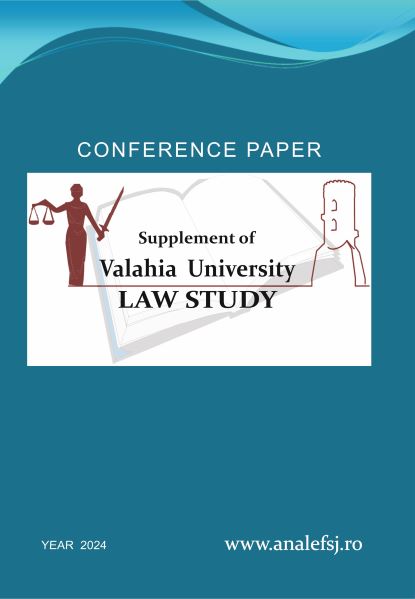HISTORICAL MEANINGS OF THE CONCEPT OF CONSTITUTION IN ROMANIAN SOCIETY
HISTORICAL MEANINGS OF THE CONCEPT OF CONSTITUTION IN ROMANIAN SOCIETY
Author(s): Alina-Gabriela MARINESCUSubject(s): Law, Constitution, Jurisprudence, History of Law, Constitutional Law, Philosophy of Law
Published by: Editura Bibliotheca
Keywords: constitution; rights; freedoms; democracy; principle;
Summary/Abstract: Historical experience reveals the fact that every state necessarily has a Constitution, if we take into account the fact that in any system of government, binding decisions must be made for the entire society. The writing of the Constitution was generated by a certain evolution of society, by the increase in the area of legal regulations that imposed a coherent, harmonious and stable settlement on the political system in each state. As a fundamental law, sometimes referred to as the "law of laws", the Constitution was established in the 18th century. In Western constitutional doctrine and practice, the Constitution was defined as follows: the form of government originating from the power of the people, in which a series of fundamental principles of law are established. Hegel, in the work "Principles of the Philosophy of Law", showed that " the people must have a sense of law and its actual state in relation to their constitution". Making the same observation, the Romanian sociologist Dimitriue Gusti said that, "a Constitution is the codified national consciousness.... so it cannot be borrowed nor can it be the work of an inspired legislator". For his part, the historian Nicolae Iorga urges us "to look for a new Constitution in the two great sources, to which we can always turn with certainty, to our past, which is the verified human experience and to the soul of the deep masses of our people." The constitutional evolution of Romania reflects cultural traditions, social realities, the degree of development as well as the degree of democratization of society. The evolution was not simple, it has a complex dimension that involves the multitude of constitutive factors of society. Therefore, it is marked by normative acts with constitutional value through which, over time, social relations regarding power and fundamental human rights were regulated.
Journal: Valahia University Law Study
- Issue Year: 2024
- Issue No: SI
- Page Range: 197-202
- Page Count: 6
- Language: English

